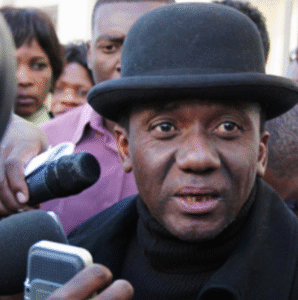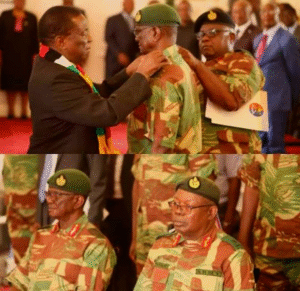ZIMBABWE’S BUDGET TRANSPARENCY: A CALL FOR PARTICIPATION AND ACCOUNTABILITY
In a recent controversial statement, Zimbabwe’s War Veterans minister, Chris Mutsvangwa, asserted that opposition CCC Mount Pleasant MP Fadzayi Mahere should not engage in discussions about the national budget, citing her lack of expertise in economics and finance. However, Mutsvangwa’s stance raises important questions about the inclusivity of the budgeting process in Zimbabwe, a country known for its participatory approach.
Mutsvangwa appears to view the national budget as a domain exclusive to economic and financial experts, neglecting the fact that it involves complex tasks such as macroeconomic forecasting, budget allocation, accounting, and auditing. However, the budget is not an esoteric preserve; rather, it is a process that affects the lives of every citizen, making it a matter of democratic right for people and their parliamentary representatives to be involved.
Economics, often mistakenly perceived as a field confined to figures and calculations, is, in fact, a social science with connections to various disciplines, including political science, geography, mathematics, sociology, psychology, engineering, law, medicine, and business. At its core, economics aims to determine the most logical and effective use of resources to meet people’s needs.
Participatory budgeting emerges as a crucial civic-engagement process, shedding light on governance, transparency, and accountability. By involving communities in deciding how public funds are spent, this approach strengthens local democracy and ensures more equitable and effective public spending.
The argument against public participation in the budgeting process often hinges on the complexity of the task, with experts fearing that increased scrutiny may impede efficiency. However, such a perspective neglects the inherent risk of corruption that thrives when the process is secluded. Corruption can manifest at various stages, from budget formulation to execution, and without public scrutiny, the opportunities for malfeasance multiply.
Fadzayi Mahere’s call for public scrutiny is not unfounded. The government’s historical non-compliance with constitutional and legal requirements, such as the Public Finance Management Act, has left gaps that invite corruption. Unbudgeted expenditures without proper authorization, exceeding overdraft limits, and surpassing debt limits outlined in legislation have all contributed to a weakened budget credibility and sustainability.
One of the critical areas where improvement is needed lies in the government’s adherence to legislative obligations and institutional arrangements. The call from analysts to identify focused improvements for effective execution of current obligations underscores the urgency of the matter. The risk of corruption persists when the budget process lacks transparency and public participation, necessitating a collective effort to rectify these issues.
In conclusion, Zimbabwe stands at a crossroads where decisions about the national budget impact the lives of its citizens significantly. The debate triggered by Mutsvangwa’s comments highlights the need for a more inclusive approach to budgeting. By recognizing the interdisciplinary nature of economics and embracing participatory budgeting, Zimbabwe can foster transparency, accountability, and ultimately, a budget process that truly serves the interests of the people.



